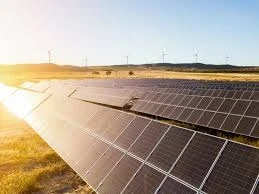solar panel efficiency cloudy day
Solar Panel Efficiency on Cloudy Days
Solar energy has become a cornerstone in the global transition towards renewable energy. However, many potential users often wonder about the efficacy of solar panels on cloudy days. This article delves into how cloud cover affects solar panel efficiency and what that means for solar energy generation.
Solar panels are designed to convert sunlight into electricity through a process known as the photovoltaic effect. The efficiency of this process depends significantly on the intensity of sunlight reaching the solar cells. On sunny days, solar panels can reach their peak efficiency, typically converting 15-22% of the sunlight into usable electricity. However, when clouds roll in, the situation changes.
Clouds can diffuse sunlight, leading to a softer illumination, which, although diminished, still allows for energy generation. Research indicates that solar panels can still produce approximately 50-70% of their peak output even on overcast days. This makes solar power a viable option even when the sun isn’t fully visible.
The type of solar technology used also plays a crucial role in performance under cloudy conditions. Monocrystalline panels, known for their efficiency and longevity, tend to perform better in low-light situations compared to polycrystalline and thin-film technologies. This is due to their construction, which allows them to absorb and convert available light more effectively.
solar panel efficiency cloudy day

Additionally, advancements in solar technology are continually enhancing performance. Innovations such as bifacial solar panels, which capture sunlight from both sides, and solar tracking systems that adjust the panel angle for optimal light capture can further improve energy yield on less-than-ideal days.
Moreover, it is essential to consider geographical location. Areas that experience frequent cloudy weather may see a slight reduction in overall solar energy generation compared to sunnier regions. However, even in such locations, solar panels can still offer significant benefits. For example, in places like the United Kingdom and Germany, extensive solar installations have demonstrated that solar energy remains a reliable source, despite regular cloud cover.
Energy storage technologies, such as batteries, play a vital role in maximizing the benefits of solar energy. These systems can store excess energy generated on sunny days, allowing homeowners and businesses to utilize that power during cloudy periods or at night. This ability to store energy not only enhances energy independence but also provides a buffer against fluctuations in solar output.
In conclusion, while cloud cover undoubtedly affects solar panel efficiency, it does not eliminate the potential for significant energy generation. With the right technology and systems in place, solar energy can still play a crucial role in the energy landscape, even in regions with frequent cloudy weather. As advancements continue and energy storage solutions improve, the viability of solar power becomes increasingly robust, heralding a promising future for renewable energy as a whole. Overall, solar panels remain a sustainable and effective way to harness energy, providing benefits regardless of the weather conditions.
-
String Solar Inverter: The High-Efficiency Solution for Smart Solar EnergyNewsJul.14,2025
-
Revolutionizing Rooftop Energy with the Power of the Micro Solar InverterNewsJul.14,2025
-
Power Independence with Smart Off Grid Solar Inverter SolutionsNewsJul.14,2025
-
On Grid Solar Inverter: Powering the Future with Smart Grid IntegrationNewsJul.14,2025
-
Monocrystalline Solar Panels: High-Efficiency Power for the Future of Clean EnergyNewsJul.14,2025
-
Bifacial Solar Panel: A Smarter Investment for Next-Generation Energy SystemsNewsJul.14,2025







